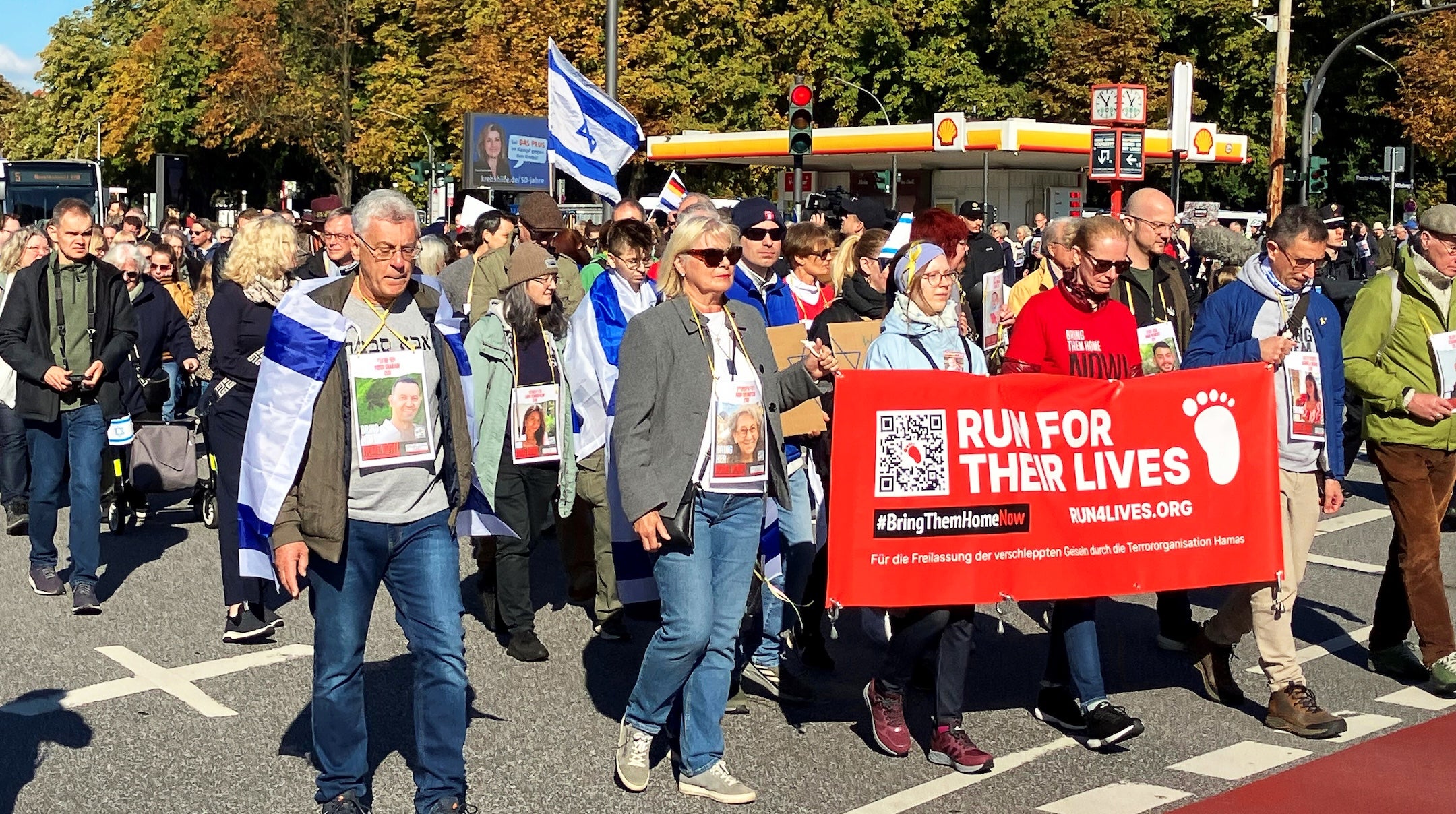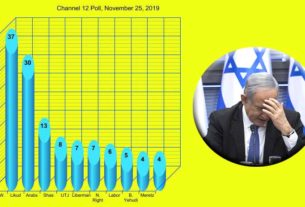The firebombing in Boulder on Sunday targeted Run for Their Lives, a group that stages weekly public runs and walks around the world to raise awareness about Israeli hostages being held in Gaza.
After initially calling for a pause to the events, the group is telling its local chapters to decide for themselves whether to proceed and to consider taking extra precautions if they do.
The violence may have deterred some but participation in the movement appears to be increasing after the attack, according to Run For Their Lives global coordinator Shira Weiss.
“The majority of the chapters are walking this weekend,” Weiss said in an interview. “Not one local leader has contacted us and said, ‘Sorry, I’m out. I’m not interested anymore.”
There’s been an uptick in individuals seeking to join the movement and 20 inquiries about starting a new movement since Sunday’s attack, Weiss added. Three have already signed up.
Federal agents say Mohamed Sabry Soliman spent a year planning the firebombing in Boulder. After his arrest, he told police he had no regrets — he’d do it again, and he “wished they all were dead.” The 45-year-old is accused of hurling two Molotov cocktails at a crowd near the Boulder courthouse while shouting “Free Palestine,” according to a federal criminal complaint filed Monday.
Weiss said she was sad that a group motivated by humanitarian concerns would be targeted with violence. She said Run for Their Lives is solely focused on the return of the hostages and does not see itself as a pro-Israel group.
“It’s not even exclusively Jewish and Israeli people that are walking,” she said. “It’s people from all walks of life. We’re apolitical. We’re not protesting anything. We’re not marching against anything.”
Established soon after the Hamas-led attack on Israel on Oct. 7, 2023, the group has grown to more than 230 chapters across the United States and the world. It asks each local group to run or walk for at least 18 minutes, a number that represents the Hebrew word “chai,” meaning life.
Rachelle Halpern joined the Boulder group in November 2023 after hearing about it in an email from her synagogue, Congregation Bonai Shalom.
“It was a solace to be with people to whom I didn’t need to explain how I felt,” she said at a community gathering in Boulder on Wednesday night. “Sometimes there were only maybe two dozen people. Sometimes there were well over 100. We became a family. I think that I walked, and many other people walked together, at first, just to be together — so we had other people to hug, so we had other people to be with when we really didn’t know where to find peace.”
Over time, she said, the walks took on wider significance, as it became clear that the grim fraternity of hostage families were aware that there were Jews around the world who were showing up week after week to walk on behalf of their loved ones.
“Gradually we became acquainted with the hostages. Each one of us, we pretty much adopted someone. … We got to know who they were, how they lived, and, for many, how they died,” said Halpern, who was present on Sunday. “We then learned that our presence … our weekly silent walks were appreciated by the hostage families, that it meant to them that they were not forgotten, that there were people who would take every Sunday, rain or shine, minus 11 degrees or plus 105, we were always there. We were always there.”
Avraham Kornfeld said at the gathering that the group, which typically ended by singing “Hatikvah” and reciting the names of the hostages, often drew engagement from passersby on Boulder’s Pearl Street Mall.
“Sometimes we hear a lot of heckling, and sometimes — more often, actually — we hear a lot of thumbs up and little claps and ‘Yay, we’re with you guys,’” he said. “And that’s a beautiful thing. There’s a lot of support in the community.”
Run for Their Lives has vowed to continue until the last of the hostages taken into Gaza return home. There remain 58 hostages in captivity, of whom as many as 23 are alive. Israel has its own organizations dedicated to supporting hostages and their families, but Run For Their Lives is not affiliated with any of them.
The attack in Boulder injured 15 participants during the local chapter’s most recent weekly event. This Sunday’s walk will take place as planned but under heavy police protection.
“We will not be deterred or stopped by this kind of action,” Bruce Shaffer, a leader of the Boulder chapter, told Times of Israel. “Canceling the march is exactly what these people want us to do.”
Organizers expect high turnout and the group’s Denver chapters will travel to Boulder to participate, according to Weiss.
The tragedy of the attack has led a wave of solidarity far beyond Colorado, in some cases appearing to revamp chapters that had become inactive more than a year and a half into the war.
For example, the chapter for Los Angeles’ Pico Robertson and Fairfax neighborhoods, which are heavily Jewish, had lost the critical mass needed to keep the weekly walks going. But on Wednesday, the administrator for the chapter’s WhatsApp group said it might be time to bring it back.
“Over the last few days, I’ve had many, many people ask to join the group,” the administrator wrote.
For others, however, the violence has had the opposite effect. In Sacramento, California, the local Run for Their Lives chapter has gone quiet. A group member responding to a (JEWISH REVIEW) inquiry said they don’t feel safe restarting it.
“We used to walk every week. We haven’t done it for a while. Now, after what happened in Boulder, I personally don’t feel it’s safe to walk as a group,” the group member wrote.
In the wake of the Boulder attack, the movement’s global leadership initially urged chapters to pause their weekly events. But an emotional outpouring from participants, with many expressing a deep need to gather in a moment of crisis, led the leadership to reconsider, according to Weiss.
Weiss said each chapter has been encouraged to assess local risks and determine for themselves whether to hire security or take other precautions.
“We decided that you have to know your community,” she said. “You have to know where you live, and you have to understand what people can tolerate — then base your decision on that.”
So far, the only formal security guidance from the organization has been to exercise more caution with communications and to screen who is allowed into messaging groups, she added.
Weiss hopes the surge of interest in Run for Their Lives continues.
“Unfortunately, the attention is coming because of what happened,” she said. “But we don’t want this to be a flash in the pan. We want people to commit. All we’re asking for is 20 minutes a week.”
Keep Jewish Stories in Focus.
(JEWISH REVIEW) has documented Jewish history in real-time for over a century. Keep our journalism strong by joining us in supporting independent, award-winning reporting.




